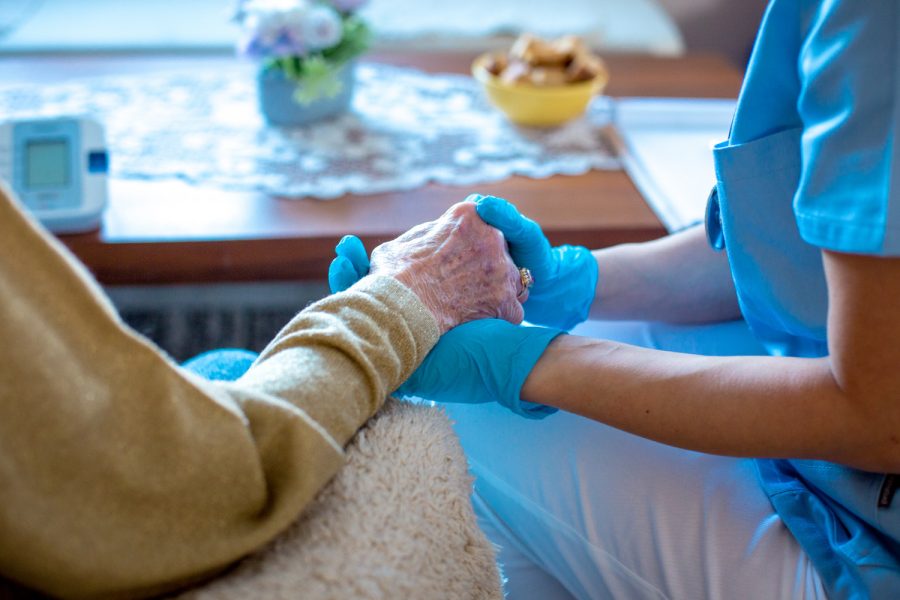Opinion | Programs that aid COVID-19 patients should not end yet
Ending financial aid programs for COVID-19 patients would put an enormous burden on them.
May 5, 2022
With pandemic restrictions being more lenient now than before, it’s easy to forget that COVID-19 is still a problem for some people—a really expensive problem. In Iowa, the average cost for hospitalization is $51,641 for mild cases and $278,369 for severe ones. However, depending on one’s insurance provider, this amount can be as low as to $3,800 or $1,500.
Regardless, it is unreasonable to charge patients these sums of money considering Iowa’s lower rates of employment and the effects of medical debt on a patient’s well-being. Financial aid programs covering 100 percent of COVID-related expenses are ending, but because of unemployment rates and the consequences of debt, we need to keep these programs.
First, it is important to point out that COVID-19, though not as prevalent anymore due to vaccinations and safety protocols, is still an issue. Just recently, a subvariant of the Omicron virus — called BA.2 — has been spreading rapidly in Johnson over the course of April. The Iowa Department of Public Health reported 1,063 infections in just seven days, suggesting that COVID-19 continues to be a problem for Iowans.
This would not be detrimental if healthcare were free or at least cheap. However, it is not. I understand that treatment for COVID-19 cannot be completely covered by insurance companies and federal programs forever, but many contemporary factors make it evident that now is not the time to end financial support for patients.
One of these factors is employment. Before the pandemic, Iowa had an unemployment rate of 2.6 percent, which skyrocketed to 10.5 percent during the peak of the pandemic and has gone down since then to 3.7 percent in January of this year.
Though slowly improving, unemployment rates remain above pre-pandemic levels. Taking that fact into consideration, not everyone will have gained/regained the means necessary to pay for medical bills out-of-pocket, even with insurance benefits and coverage. Hence, COVID-19 patients should keep being supported, at least until employment rates go back to normal.
Another factor to consider would be medical debt and the adverse effect this has on a patient’s well-being. Studies show that people who struggle with paying for health care are susceptible to higher blood pressure, poorer mental health, and a shorter life expectancy, meaning that getting health care could lead to more health issues in some circumstances.
With the unemployment rates in Iowa in tandem with the high medical costs for treatment, it is not unlikely for individuals without a reliable source of income or aid to go into debt, supporting the idea that Iowans should be given more time before federal programs and insurance companies stop covering in full all COVID-related expenses.
Society will attempt to recapture some semblance of normalcy, but right now, it has not. Unemployment rates are still relatively elevated and subvariants of the virus continue to infect more people every day.
While Iowa is in the process of recovering from the pandemic, we should keep doing as much as we can for COVID-19 patients.
Columns reflect the opinions of the authors and are not necessarily those of the Editorial Board, The Daily Iowan, or other organizations in which the author may be involved.














